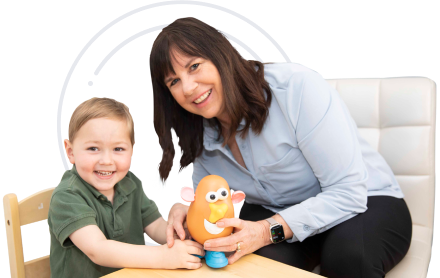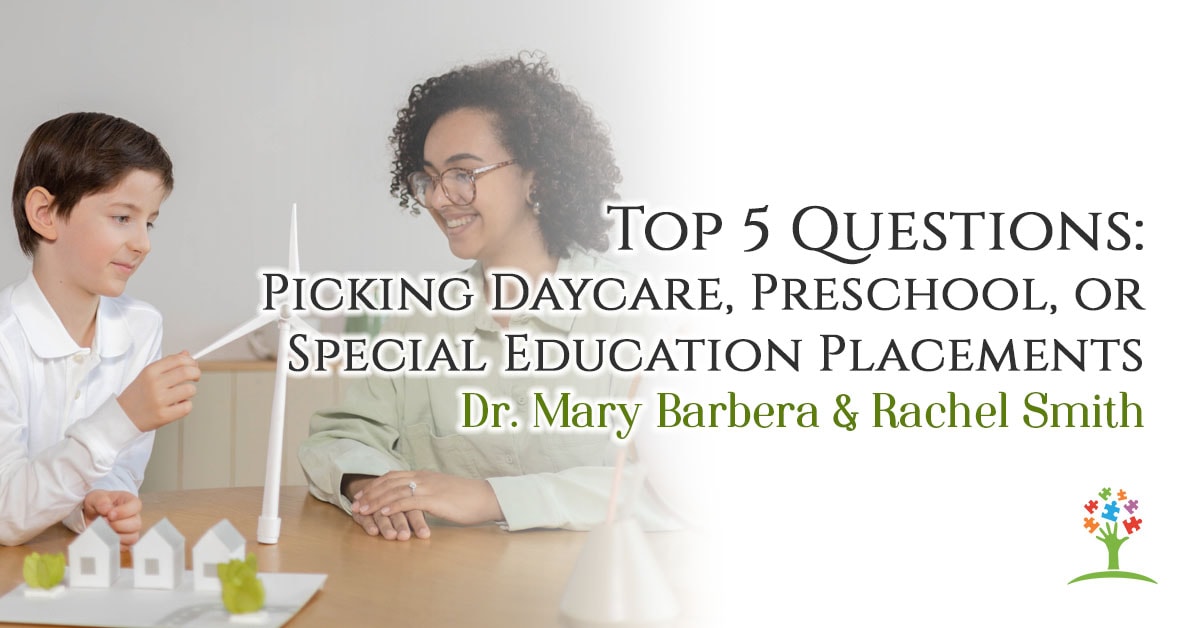Top 5 Questions: Picking Daycare, Preschool, or Special Education Placements
Want to Learn how to Increase Talking & Decrease Tantrums in Children with Autism or Toddlers Showing Signs?
Want to start making a difference for your child or clients?

How Do You Decide What Type of Program or Placement is Best for Your Child?
What Should You Look for in a Great Program?
What Skills and Prerequisites Should Your Child Master Before Starting a Placement?
What Should You Do When School is Reporting Problem Behaviors You’re Not Seeing at Home?
How Do You Know If Your Placement or Program Isn’t Working? How Do You Make a Change?
This isn’t always easy because pulling your child out of school has two big problems. 1. You lose a lot of your rights when it comes to getting support and assessments. 2. There aren’t a ton of other options, especially for older children. Be really considerate of what isn’t working, and see if you can collaborate with the program to make a change: get more support, add a 1 to 1, get an FBA and VB-MAPP. Try to assess your options, and in the meantime… work at home, take it slow and try to address the problems with the school allowing them to fix them.
If you’re looking for a placement for your young child. Try searching my name – Mary Barbera, Turn Autism Around, VB-MAPP, or other keywords important to a program for your child, along with your city and state. If you find a program another way, ask them if they’re familiar with me and my approach. Help me push the envelope and change lives for autism families everywhere!

You’ll Learn
- Top 5 questions about seeking a program or placement for your child.
- What type of placement is best for a child with autism?
- What to do when your placement isn’t right.
- What to look for in a great program.
- Are there skills your child should learn before starting school?
- How to collaborate with your school or program.
- Finding the right placement.
Resources
- How to Advocate For Your Child with Autism in an IEP Meeting with Amanda DeLuca and Kirby Morgan
- Revisiting My Autism Journey: From Overwhelmed Parent to Autism Leader and Advocate – Vikram
- Panchal Interviews Dr. Mary Barbera
- Turn Tantrums Around Mini Course
- Top 5 Q and A series: Teaching Play and Social skills
- Autism Case Study with Michelle C: From 2 Words to 500 Words with ABA Online Course
- Assessing a Child with Non-speaking Autism: Hot Seat #7 with Zulekha
- How to Deal with Autism Meltdowns: Hot Seat with Zulekha Part 2
- Assessment App
- Mary Barbera – Turn Autism Around – YouTube
- Join a free Workshop
- Mary Barbera on Facebook
- Mary Barbera on TikTok
- Mary Barbera on Instagram
Want to Learn how to Increase Talking & Decrease Tantrums in Children with Autism or Toddlers Showing Signs?
Want to start making a difference for your child or clients?
